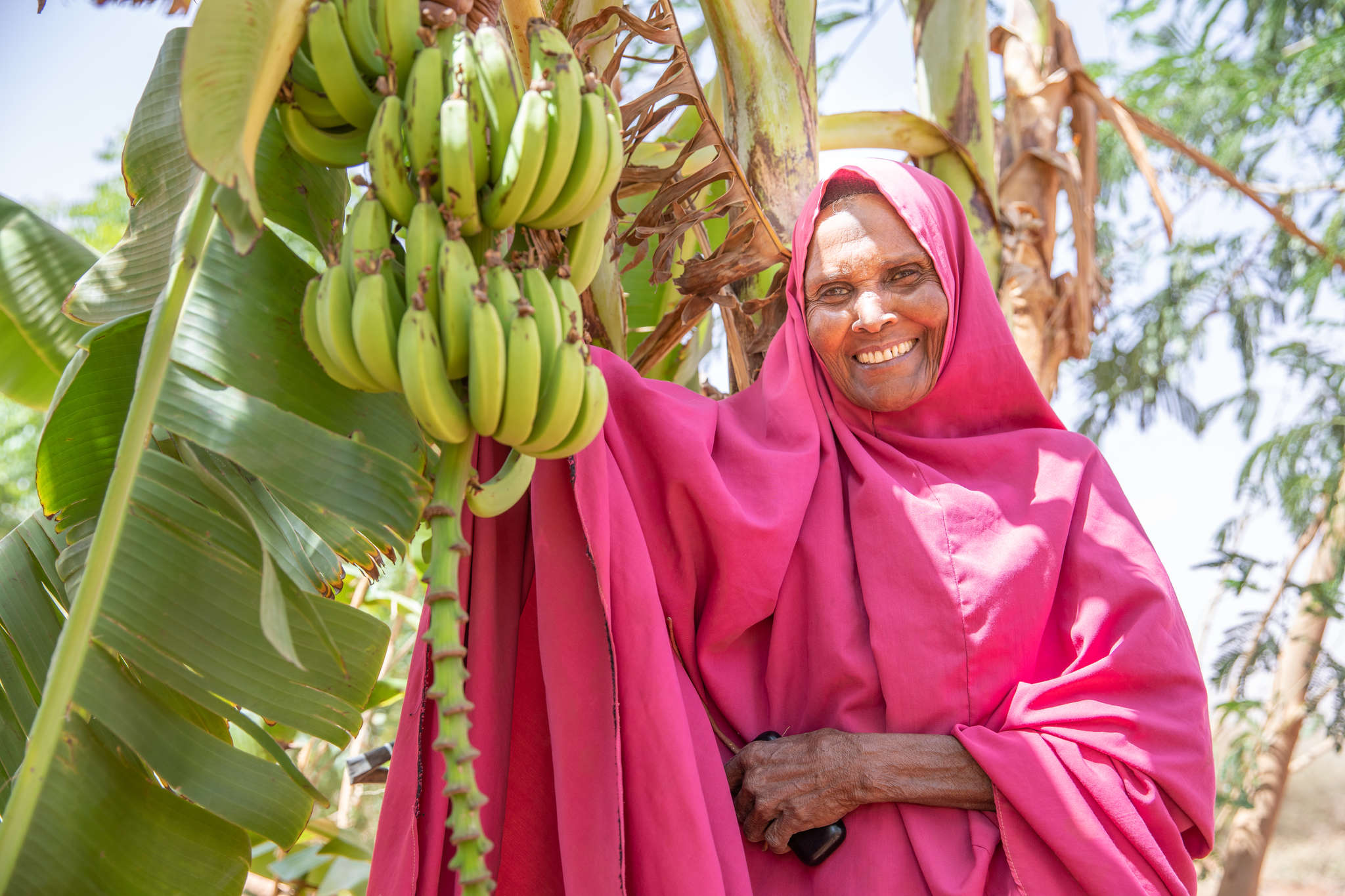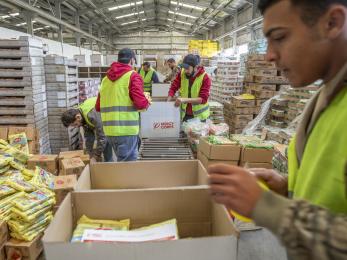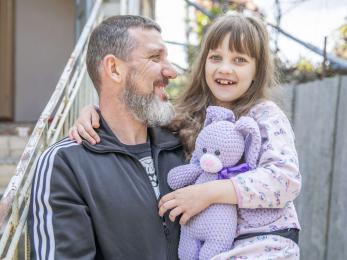Refugee crisis: What's happening on the ground in Greece
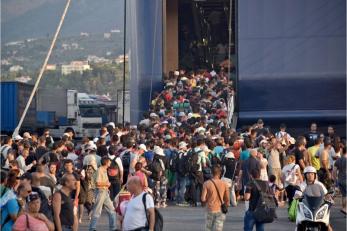
The refugee crisis in the Mediterranean has reached a tipping point, and most of the families desperately fleeing across the ocean to Greece are Syrians, escaping a brutal war that is now more than four years long.
Some refugees are coming all the way from their homes in Syria, making the long journey across Turkey and then to Greece in hopes of finding a more promising future in Europe.
Other Syrians have been living in refugee camps or host communities in neighboring countries, but without jobs or consistent education, it’s difficult for many to imagine a long-term future there.
So they are gathering together, taking what they can carry, and braving a trip across the Mediterranean to Europe in tiny rubber dinghies, where they hope to find acceptance — and the chance for a new life.
Our experts are now on the ground in Greece, helping the new refugee arrivals by providing food, water and critical information and communication services.
Javier Alvarez, senior team leader for Mercy Corps’ Strategic Response and Global Emergencies, recently traveled to Greece to assess the refugee crisis as it was unfolding. He spoke with us this week about his experience and what we must do to help refugees in need.
Q: There are more than 11 million Syrian refugees. Can you talk about why they are leaving?
Javier Alvarez: People are leaving mostly because of violence from the war — but also due to fear of persecution. Their families are being threatened because there is a new offensive from anti-goverment forces. A lot of the stories we hear are about cities, towns, and villages that have been surrounded by or are under attack.
Q: What are they hoping to find after they’ve left home?
First of all, I think they bring an attitude of hope. They want to reach a destination where they and their families can be safe — where they can put their skills and experience to work.
We see many middle-class Syrians, especially youth, who want to contribute. They want to finish their studies, pursue further education, or start working as they did back in Syria. We see a lot of professional dentists, teachers, and doctors — these refugees are trained and they can contribute.
But I think the long-term integration in host countries needs to be worked out with time. There needs to be a commitment from the host society and also from the refugees that arrive. They will need to adapt and learn the language. But they are eager. Especially young people are eager.
Q: And what happens when they flee?
We have teams in different countries now, so we have a very good picture of what people face on their journey. If they are going to Europe, a typical trip would take them out of Syria from different places.
They will cross into Turkey — 30-percent will go through Gaziantep (Turkey). We have an office there, so we are trying to help people by providing information.
Then they will cross Turkey to reach Izmir, which is the big hub for smugglers. There, they will pay about $1,500-2,000 to cross to Greece in a small dinghy. They will arrive on one of the Greek islands, and after three to five days they will take an overnight ferry to Athens.
From there, they start moving north, to Macedonia, Serbia, Hungary — now they seem to be going to Croatia, Austria, and Germany.
Q: How long is the journey from Syria to Europe?
It’s a long trip, and a lot of it is unfortunately done through smuggler networks — there is a huge business going on. We know that a lot of the journey through Europe is done on trains, but a lot of it is done walking as well. If they aren’t walking, the whole journey takes between one to three months. If they are walking, it takes much longer.
Q: What kinds of challenges do they face along the way or when they arrive?
Along the way, there are dangers. Most refugees don’t carry any registration, so there is a risk that they may fall victim to a smuggler’s network or even human trafficking. There are protection issues for children especially — some of them travel alone or in groups and they might be tricked or manipulated during their trip.
What we’re seeing when they arrive in Greece are a lot of basic needs — there are car accidents, dehydration, tiredness, lack of food and water, lack of healthcare, sunstroke, things like that.
And then they also face discrimination. Some of the European countries are putting armies on the borders. It’s a very primitive reaction — some places don’t understand that these people do not want to stay in their countries — they are refugees. They should be entitled to certain protections.
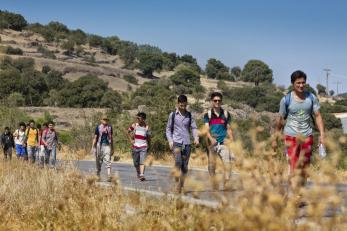
Q: Many Syrian refugees live in neighboring countries in the Middle East. What is that like, and why are people leaving those places?
I think Lebanon, Jordan and Turkey have all been very welcoming to Syrian refugees. We know that 25 percent of the Lebanese population is now refugees, so this should set an example for the European nations and the U.S.
But if you are living in a refugee camp, there are a lot of limitations. I would say that humanitarian needs are usually covered in camps like Zaatari — people have basic shelter, recreation, and youth programs. But there are limitations — for example, having the status of a refugee for 25 years doesn’t make you a citizen.
There is always that necessity to plan for the future, to access the job market and settle down with your family. I think refugees see more of an opportunity for that in European countries.
Q: And what about refugees who are trying to adjust to life in host communities?
Well I think culturally they will be able to adapt, but they will always be looked down upon as second-class citizens, as people who came from Syria. I don’t think true integration will happen in the first generation — maybe it will happen in the second generation.
But there are certainly a lot of limitations for them. In some host countries, we know they can’t work or go to school.
Q: Why are more people fleeing across the Mediterranean to Europe right now?
I think it’s because of several factors. One has to do with the dangerous security situation in Iraq — it is not getting any better. And the situation in Syria is the same — there is a worsening of the war there.
Part of the surge is seasonal because the sea conditions are better in summer. I think people are also moving towards Europe because Germany is stepping up to accept refugees. And then there is technology — people will make the journey and then inform the people left behind with their smartphones.
We saw a lot of young people in Greece with their mobile phones, talking with their friends in Germany and the ones left behind about the situation.
Q: The Syrian refugee crisis has been ongoing for more than 4 years. Why do you think it’s really connecting with people now?
Within our living generation, we have never seen numbers like this. We’ve never seen so many refugees — it’s unprecedented. Second, I think unfortunately it often takes a photo to make people pay attention.
Unfortunately this time it was the photo of the child drowned on the beach — that child could have been any one of our own children. And then to see the Turkish guard who moved the child as if he were still alive — it was touching. But the question is, how many other photos have we not seen?
And then the media is focusing on this because they are realizing that this is not a European problem, this is a global problem. You have a country, Syria, that is basically disappearing. All these refugees are on the move, and are we going to do something about the war in Syria?
The humanitarian community has been raising their voices saying ‘we have to do something, there has to be an end to this.’ We know it’s very difficult from a diplomatic point of view, but something must be done.
Q: What are people searching for when they make it to Europe? Are they intending to stay?
Refugees are looking to establish a life — to find a job, pay their taxes, finish their studies, have a family, adapt, and learn the language. I think in general people are very respectful when they arrive.
Certain parts of Europe represent values of openness and welcoming, so people may be looking for that. These countries already have experience with migratory movements inside their countries, so I think there will be an effort both ways to integrate these refugees.
As for whether they want to stay in Europe, I think it depends very much on your age when you migrate. If you are a young person and you set up a new life in Germany where you learn the language and make friends, then it will be very difficult to leave.
If you are older, you’ll probably be looking back and idealizing your home as the place you want to go back to. I think if there is peace, many of them will go back. But I think it depends on your age from an emotional point of view.
Q: Many families are being separated in the process of leaving Syria. What impact does that have on the refugees?
It’s really terrible that families are being separated. Once a family is separated, it takes a lot of effort to find these people and then reunify them.
What it means for them, we can only imagine — a mother being separated from her children or husband, or part of the family goes another direction — it creates so much anxiety and so much psychological stress on these refugees, to add to what they are already going through.
We should be working to keep families together at any cost. At the end of the day, this is the last form of emotional support these people have — their families.
We know that in Syria, family ties are very strong and extended relatives are close, so families have already been broken up between cousins and uncles. So it’s important to at least keep mothers, fathers, and children together.
I spoke with a Syrian girl while I was in Greece — she was 24 and pregnant. She didn’t know where her husband was. On the way to Greece, she lost her husband and she didn’t know where he was. She was in contact with family in Germany, hoping that her husband would reach out to them. There was a lot of emotional distress.
Q: And is it true that some adolescents are arriving by themselves? Why are they coming without their families?
Yes. Adolescents are gathering in groups and then they might make the trip with someone who is older and travel together.
The families might send young people just to test the waters, to see what happens and then hopefully follow. There may also be rumors spreading that the European countries want more young people, and once they are there they can bring the rest of the family.
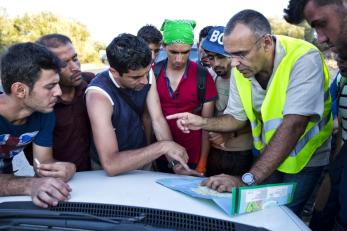
Q: What was it like to see people arrive in Greece?
We saw some of the landings of the dinghies coming into Lesbos while I was there. It looked really emotional for the people arriving. It was a big deal — there were sighs of relief, of tiredness, and of gratitude and happiness. But at the same time, they seem to be confused. So people definitely had mixed feelings when they arrived.
Q: What do refugees need most when they arrive in Greece after making the difficult journey?
Immediately they need water, food, and some kind of health check. When they first arrive, the first question many refugees ask is “Where am I?”
So they need to be directed where to go. The island of Lesbos is very mountainous, so going from the beach to the main road is a huge climb.
They need help with transportation, they need shade, they need to be comforted and told they are in good hands. They need to have some sense of safety and orientation in the first 24-48 hours.
Then after that, they need to be told what the process is like to register as a refugee and continue on their journey. Throughout that time, they need to be fed, they need to sleep in nice places, have access to latrines and clean water — and they don’t have that now.
Q: How are we be helping these refugees? And what are our plans for the future?
We have a mobile unit in Lesbos that is helping people when they arrive. So the refugees arrive at the beach, they climb on up the hill and then we can gather people together and tell them where to go.
We’re giving them food and water when they arrive and arranging buses to take them where they need to go. We’re trying to manage the crowds, which is very important. People are scared, they are nervous, they are tired — so things can get out of hand easily.
We have internet hotspots in the mobile unit so people can send a message back home to say that they’ve arrived safely. It’s very important for them to have some sort of emotional connection.
And then we want to give them information about where to go, how to apply for asylum, and what the official process is. That will help a lot because right now, many of them don’t know what’s going to happen, and that creates more anxiety.
Q: And what’s happening to the people who stay behind?
The people who don’t leave for Europe — what are they left with? War? Survival mode? Maybe they can flee to Lebanon, Jordan or Turkey but they are left with very little.
For a lot of the people making the journey to Europe, it’s a lifesaving trip because there is nothing else they can hope for. But we are trying to help Syrian refugees in those countries, too, as much as we can.
Q: What will it take to help all of the refugees in need?
Stopping the war in Syria comes first. It’s very complicated, but there needs to be serious discussion about what to do there.
But if there is anything positive from the current situation, it’s that in Germany and the rest of Europe, people are asking their government to be accountable to these refugees. That is a sign that people are very sensitive to this issue. People are starting to really care about these things.
In Greece, we saw volunteers from Hungary, New Zealand, Australia, coming to help refugees. There is international solidarity and we should all be channeling that good into pressuring governments to take action. I think what we’re seeing there is a very positive sign that we can do something.
Q: And what would you say to an individual who wants to help or has donated already?
We all come from different corners of the world. Who hasn’t needed acceptance some time in their lives? That’s what these refugees are looking for — acceptance. They just want to be accepted and respected as people.
To anyone who has donated or helped in any way, thank you for trusting us. We, as Mercy Corps, will make sure those resources reach the refugees in need. We really care about these people as an organization, and we will work hard on behalf of anyone who has donated to our refugee response.
Our team in Greece, on the island of Lesbos, is working hard to meet the urgent needs of refugees who are arriving tired, hungry and confused after their harrowing journey.
As the crisis continues to evolve, we are working to help refugees fleeing to Europe, but also focusing our efforts on the most vulnerable refugees — those who are left behind and struggling to survive in Syria, in refugee camps, or in host communities in the Middle East.
Our work is currently helping nearly 4 million people in the area — Syria, Iraq, Jordan, Lebanon and Turkey — get the food, water, shelter, household supplies and clothing they need to survive and take care of their families.
Our work is also focused on creating safe spaces for children traumatized by conflict, and helping them access education and emotional support.
